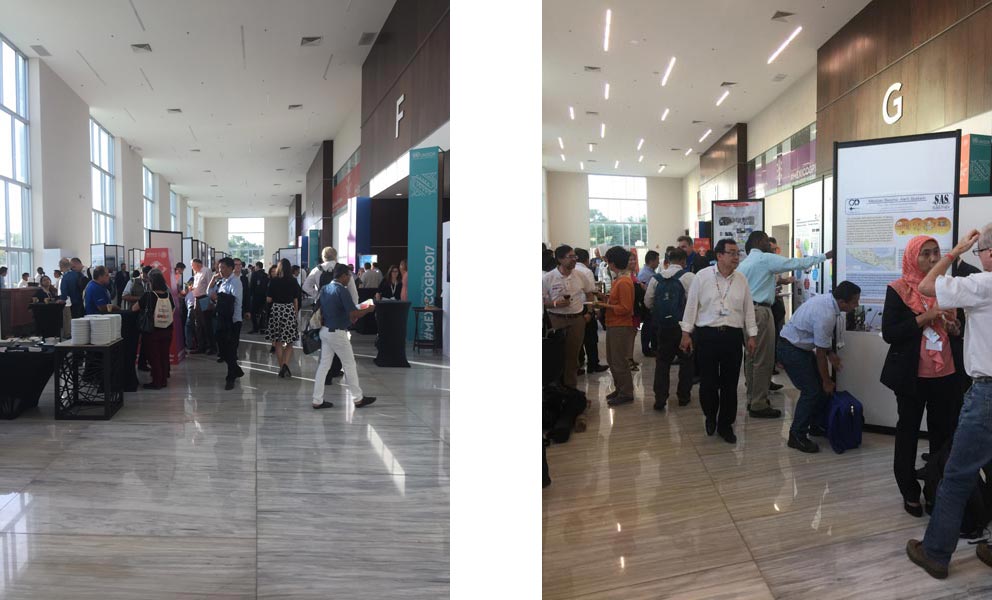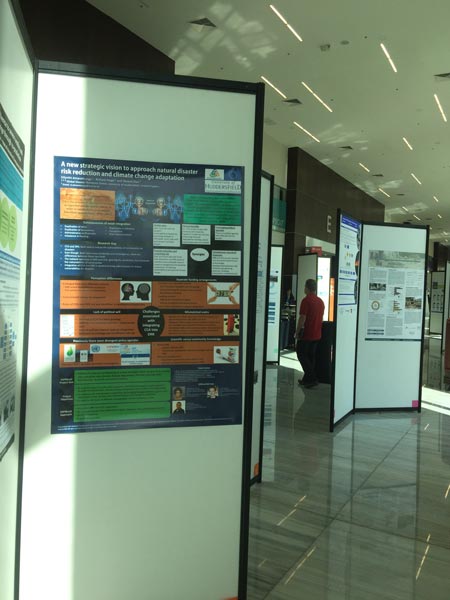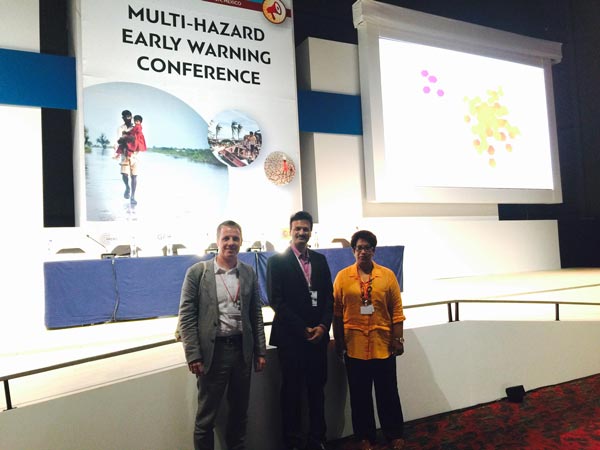Professors Richard Haigh and Dilanthi Amaratunga also actively took part at the Multi-Hazard Early Warning Conference which aimed to demonstrate to countries how they can build, improve the availability of, and their communities’ access to, multi-hazard early warning, risk information and assessment. This conference was held from 22 to 23 May in Cancún, Mexico, hosted by the government of Mexico, in connection with the United Nations Office for Disaster Risk Reduction (UNISDR) Global Platform for Disaster Risk Reduction.
The Conference deliberations and outcomes: Guided efforts and investments by countries and international organizations for effective, impact based, multi-hazard early warning systems; Review progress by countries’ efforts to establish early warning systems against the Sendai Framework, the 2030 Sustainable Development Agenda and the Climate Change Paris Agenda; and Learn from, exchange information on and promote the replication of good practices in individual, cluster and multi-hazard early warning systems.
The Conference served as a Preparatory Meeting on Early Warning for the Global Platform, complementing the overarching goals of the Platform, and specifically providing more detailed background to the Early Warning Session planned to be held on the opening day of the Platform.
Relevant stakeholders included: All countries, but in particular, those who stand to benefit the most from further development of MHEWSs such as LDC, SIDS and LLDC; National disaster risk management/civil protection agencies; National meteorological and hydrological services, geological surveys and institutes, health organizations and related scientific and academic institutions from nations that are interested to share good practice examples; Government representatives from different sectors – including health, transport, environment, agriculture, finance, development cooperation - requiring hazard information for better planning; Private sector entities that play a major role in the provision of data and information and the operations of systems key to MHEWS efforts, as well as representatives of companies that already benefit of individual, cluster or multihazard early warning systems; Regional organizations supporting the development and provision of early warnings; and Key intergovernmental and international organizations including United Nations entities, the International Red Cross/Red Crescent Movement and international financial institutions.
Organizations involved in the planning process: FAO, IFRC, ITU, JRC/EC, UNDP, UNEP, UNESCAP, UNESCO, UNESCO-IOC, UNISDR, UNOOSA/ UNSPIDER, WFP, WHO, WMO, World Bank.

The Multi-Hazard Early Warning Conference presented posters reflecting good practices, practical experience and innovation in line with the objectives of the Conference. GDRC had two posters bring selected:
- Capacity development for enhanced regional cooperation on multi-hazard early warning in coastal communities - This poster described our three-year capacity development project for regional cooperation on MHEW across Asia, entitled CABARET. The study is being carried out by fifteen Higher Education Institutes across Europe and Asia, along with major socio-economic actors in Asia. The project involves the development of a regional capacity analysis framework for MHEW, the results of which will underpin a range of capacity development activities across Asia.
- Increasing capacities of Disaster Risk Reduction (DRR) by integrating Climate Change Adaptation (CCA) - Based on primary and secondary data sources, revealed from a Horizon 2020 EU funded project called ESPREssO (Enhancing Synergies for disaster Prevention in the European Union), this poster demonstrated the challenges associated with integrating CCA into DRR and more specifically, this poster visualises certain feasible strategies to integrate CCA into DRR to increase the capacity of DRR.

The two professors had bi-lateral meetings with Sirinivasa Kumar Tummala, Head of the Intergovernmental Coordination Group for the Indian Ocean Tsunami Warning and Mitigation System Secretariat (ICG/IOTWMS), about continuing their collaborations as part of the EU funded Erasmus+ project CABARET, which aims to build capacity for regional multi-hazard early warning.
 Professors Dilanthi Amaratunga & Richard Haigh with Sirinivasa Kumar Tummala, Head of the Intergovernmental Coordination Group for the Indian Ocean Tsunami Warning
Professors Dilanthi Amaratunga & Richard Haigh with Sirinivasa Kumar Tummala, Head of the Intergovernmental Coordination Group for the Indian Ocean Tsunami Warning